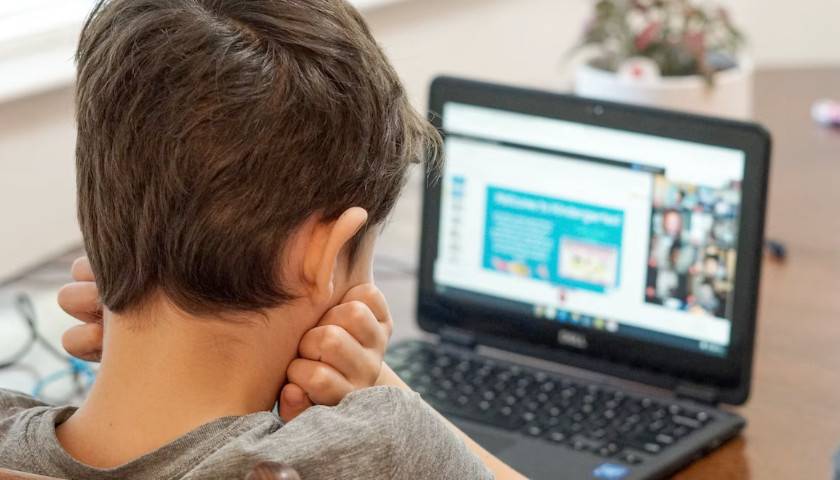by Kerry McDonald
The latest data dump from the Nation’s Report Card reveals declining academic performance among US students. As with previous releases showing the same trend, especially over the past three years, the solution proposed by many education reformers and advocates is to double-down on the amount of schooling and school-like activities students get.
“The greatest challenge is finding extra hours for supplementary instruction,” writes the author of a recent New Yorker/ProPublica article explaining some of the strategies that have been adopted by school districts to fix alleged “pandemic learning loss.” These include “high-dosage tutoring,” longer school days, more summer school programs, and year-round schooling.
The problem with proposed learning loss remedies is that they view more schooling as the pathway toward more learning, rather than challenging the whole notion of schooling itself. Children need less schooling, more time to play, and more freedom to learn.
The problem with high-dose tutoring, longer school days/years, summer school, etc. to fix alleged pandemic learning loss is it takes away what little free play time remains for many kids while subjecting them to more of the schooling status quo. They need more play, less school.
— Kerry McDonald (@Kerry_edu) July 17, 2023
As Boston College psychology professor Peter Gray says in his latest Substack: “We have created a world in which children are monitored and controlled by adults nearly all the time. They are spending more time in school and schoolwork at home than ever before. Schooling itself has become ever more rigid with ever less opportunities for play or anything creative.” Gray and his colleagues argue in a recent paper in The Journal of Pediatrics that this childhood play deprivation is contributing to the current youth mental health crisis.
It’s not that learning loss remedies don’t work. It is true that if students are subjected to more intensive drilling of schooled content, and particularly content to be measured on standardized tests, they will perform better on those tests. Last month, Education Week reported on how “high-dosage tutoring” during the school day improved student test scores.
But are those children really learning? Sure, they may be memorizing content for a test, but do they really know and retain that content?
I have been writing for years about how “summer slide” does not exist, explaining that alleged learning loss over summer vacations exposes the folly of today’s coercive schooling model. Students memorize and regurgitate schooled content during the academic year and then quickly forget it. This was certainly my experience in school, and I bet it was true for many of us.
Moreover, after we graduated from high school, how many of us really remembered much of what we had been taught? What is a covalent bond? What year did the Roman Empire fall? Chances are that the content we remember is the content that is most meaningful to us and most connected to our interests and vocations.
Now, with all the chatter about alleged pandemic learning loss in the wake of school closures and remote learning, the same tired tale is being told again. Test scores need boosting and more schooling is the answer, goes the narrative. Unlike the “summer slide” story of yesteryear, today’s pandemic learning loss interventions are flush with cash, thanks to billions of dollars in federal Covid relief funds. Questioning the underlying premise of these interventions by stating that schooling is not the same as learning, and testing is a short-term and often artificial marker of memorized knowledge, is simply not profitable.
It takes a bold paradigm shift to move away from the traditional model of forced schooling and recognize the many more authentic and joyful ways of being educated. Some of these ways look nothing like schooling.
In my podcast episode this week, Karema Akilah discusses the value of unschooling and self-directed education as an alternative to the conventional classroom. A former teacher in the Maryland public schools, Akilah has been homeschooling for 20 years and unschooling for the past 12. She is the founder of The Genius School and the Genii DAO application, and works with families to “deschool” by helping them to shed their assumptions about learning while embracing non-coercive, self-directed education.
“I ask parents, teachers, and kids: who do you never get to be in school?” said Akilah in our interview. “I’ve met with hundreds of families for the past three years and the answer is always the same: I never get to be free to be myself. Then when we talk about deschooling, I explain that the thing that stands in the way of children, parents, and teachers being able to be who they really want to be—which is authentic and free—are the expectations of others, the expectations of traditional school. That’s why I believe in self-directed learning.”
As Akilah explains, self-directed learning can come in many forms, from families choosing unschooling as their approach to homeschooling, to joining a self-directed microschool such as Agile Learning Centers, to enrolling in a Sudbury-model school.
Fortunately, there are now many more alternatives to conventional schooling that families can consider, and they are more accessible than ever. Education entrepreneurs like Akilah are steadily building these alternatives and challenging the schooling status quo.
Moving away from top-down, traditional models of education toward decentralized, learner-driven ones leads to deeper learning and mastery tied to an individual’s personal interests and goals.
This learning can’t be lost because it is gained through freedom, not force.
– – –
Kerry McDonald is a Senior Education Fellow at FEE and host of the weekly LiberatED podcast. She is also the author of Unschooled: Raising Curious, Well-Educated Children Outside the Conventional Classroom (Chicago Review Press, 2019), an adjunct scholar at the Cato Institute, education policy fellow at State Policy Network, and a regular Forbes contributor. Kerry has a B.A. in economics from Bowdoin College and an M.Ed. in education policy from Harvard University. She lives in Cambridge, Massachusetts with her husband and four children.





